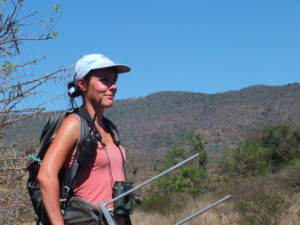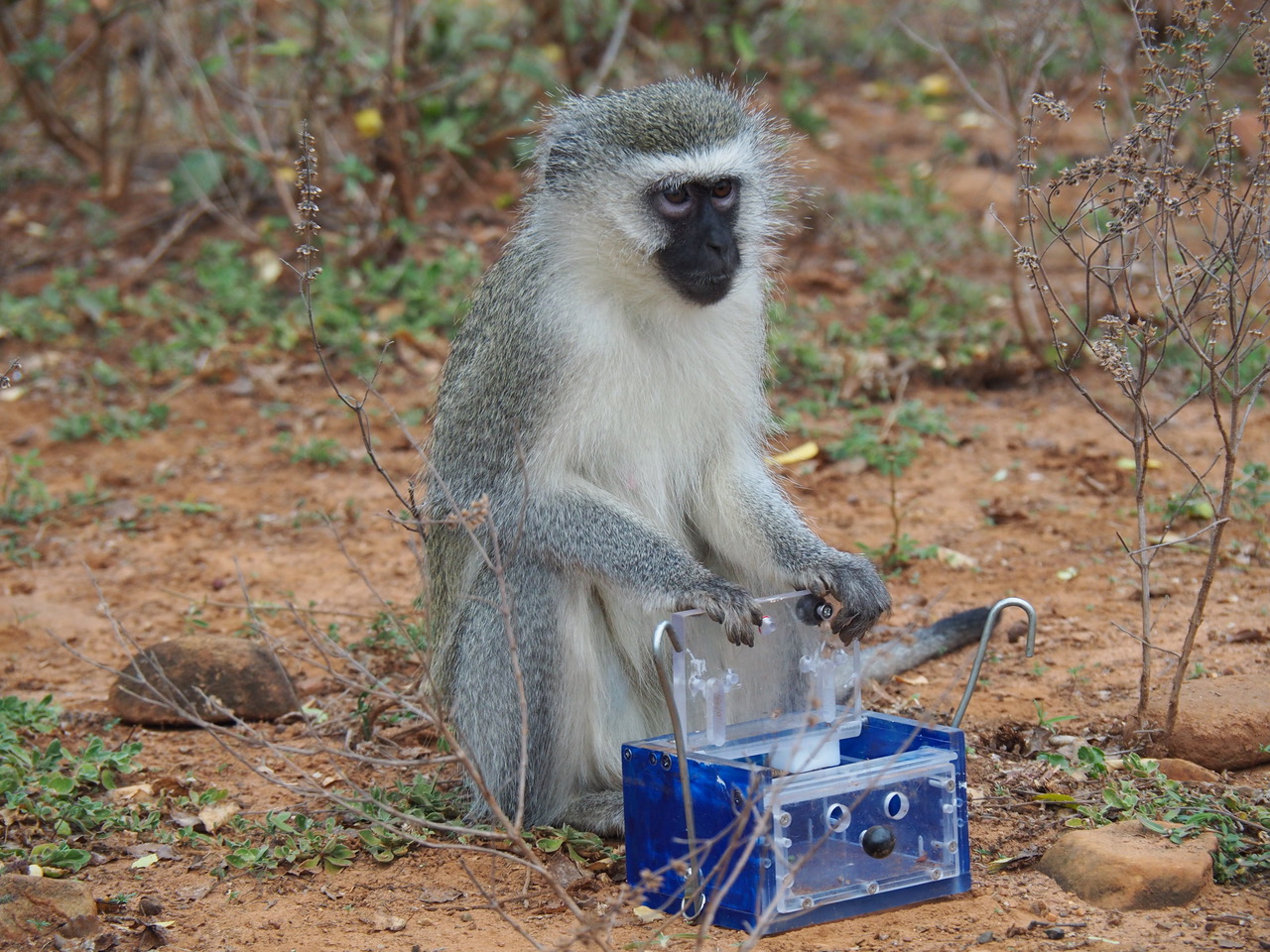Charlotte Canteloup,
Former Fyssen 2017
Will Hoppitt & Erica van de Waal
Nature Communications, 2020, 11:459
Abstract
Little is known about how multiple social learning strategies interact and how organisms integrate both individual and social information. Here we combine, in a wild primate, an open diffusion experiment with a modeling approach: Network-Based Diffusion Analysis using a dynamic observation network. The vervet monkeys we study were not provided with a trained model; instead they had access to eight foraging boxes that could be opened in either of two ways. We report that individuals socially learn the techniques they observe in others. After having learnt one option, individuals are 31x more likely to subsequently asocially learn the other option than individuals naïve to both options. We discover evidence of a rank transmission bias favoring learning from higher-ranked individuals, with no evidence for age, sex or kin bias. This fine-grained analysis highlights a rank transmission bias in a field experiment mimicking the diffusion of a behavioral innovation.
This study has been led by Dr. Charlotte Canteloup, Fyssen postdoctoral follow affiliated at the University of Lausanne, Switzerland. Charlotte spent 13 months in South Africa to run field experiments with wild vervet monkeys. She worked on social transmission of new behaviors with the aim to better understand the origins of culture. Her postdoctoral research shows that vervet monkeys learn from higher status individuals and suggests that they are capable of social transmission that could support group-level food processing traditions.
The story of this study is related here
